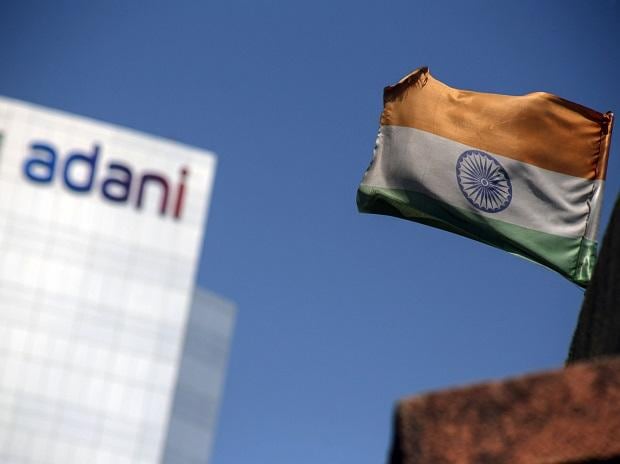All that’s problematic about Hindenburg report and the allegations in it
Earlier this year, Hindenburg Research, a for-profit-motivated “activist firm,” released a scathing report on the Adani Group. The report, made public with its sensational title, resulted in exactly what Hindenburg Research had imagined: the frantic panic that caused the Indian stock markets to crash. The report made several allegations against Al-Adani’s group. It alleged manipulation of stock prices, circumvention of regulations, and fabrication of master alignments, among other things. The devastation caused by the report led many people to the Supreme Court of India where multiple judicial petitions were filed. Knowing about the matter, the court formed an expert panel headed by the former High Court judge, Justice (Ret.) Abhay Manohar Saberi, along with other eminent personalities like Justice (Retd) JP Devadhar and KV Kamath. The committee was tasked with evaluating the issues raised by Hindenburg in its report and thereafter providing the Supreme Court with detailed observations on their validity and suggestions for improvement to the Securities and Exchange Board of India (SEBI). The first report of this expert panel has now been released to the public. As noted by the Committee, the Hindenburg Report was based largely on publicly available information which was presented in such a way as to cause the Adani stocks to decline. It also indicated that the high fluctuations in Al-Adani stocks “were attributed to the publication of the report and its consequences.” However, despite the analysis provided by the financial experts on Twitter, the Supreme Court-appointed panel has clearly labeled Hindenburg’s claims mere suspicion and noted that “doubt, however strong, cannot replace evidence.” Further, in analyzing Sebi’s investigations into the matter and checking whether there has been any regulatory failure on Sebi’s part, the Commission stated: “Suffice it to say, it would not be possible to re-consult a regulatory failure on this charge since Sebi has an active and operational monitoring framework to take note of high volume and price movements and applied themselves to the data generated by this monitoring, applying objective criteria, to consider whether the integrity of the natural price discovery process had been manipulated.” The commission even recorded that no consistent pattern of abusive trading emerged. However, the problem with the Hindenburg Report, apart from the havoc that a foreign company intentionally created in the Indian market, and later benefited from, is its concerted attempt to discredit India on the world stage. It is noteworthy that this plot was suspiciously timed when India is at the top of the Group of Twenty. It is undeniable that the G20 presidency has put the spotlight on India. However, apart from this, India was moving up the ranks in several indicators. Moreover, unlike most Western countries, we have steered clear of alarming global recessions through our reasonable policies and economic foresight. In the past decade, India has begun to carve out a new space for itself on the global platform, whether through culture, diplomacy or films. This exponential growth in various sectors has energized the country’s entrepreneurial affinity and propelled homegrown Indian talent. Against this background, it is quite clear why foreign bodies with perverted intentions seek to malign India, attack its institutions and break its economic backbone. However, these lobbyists forget that the momentum that India is boasting about at present did not come overnight. It took years to build and strategically implement economic and social reforms, modern institutions, strong laws, and growing emerging industries. Therefore, attacking India with such flashy tactics indicates an irritant disdain for the success the country has achieved in the past decade. Perhaps most frightening for such foreign institutions is that India is constantly upgrading. Whether it is the decriminalization of laws, the introduction of vital legislation, or the empowerment of institutions, there is a constant and sincere attempt to push the country into another league. Therefore, before designing attacks on these systems and processes, it is important to remember that they have been perfected, and therefore well-oiled so as not to cause damage. Moreover, the constant criticisms of judicial fairness, which Lobby salutes from Indians who seem to rejoice more at India’s losses than at its successes, is a predictable pattern. However, our courts are still bound by the Indian Constitution and its principles only. Take the rulings handed down by the Supreme Court last week; A biased tribunal had, it is alleged, found an obvious way to pass judgments entirely in favor of the central government. Instead, the Supreme Court reached its decision by interpreting the legal principles in a balanced and legally appropriate manner. Finally, it is most shocking to watch the political parties fall prey to, and even go so far as to celebrate, the attacks orchestrated against India by foreign organizations, despite their devastating consequences. Political battles aside, for politicians to use such intrigue as campaign fuel is painful, if not embarrassing. Not only does this attitude offend the country and our Prime Minister, but it halts democratic and parliamentary processes. However, while the influx of mischievous jobs – from the Hindenburg to the Pegasus – continues, they have as a result become almost normal. Their presence does not do much harm to India, as we continue to remain isolated by our strong economy, thriving democracy and sound institutions.
The author is Managing Partner, Parinam Law Associates
Disclaimer: These are the personal opinions of the writer. They do not necessarily reflect opinion www.business-standard.com or the business standard Newspaper
